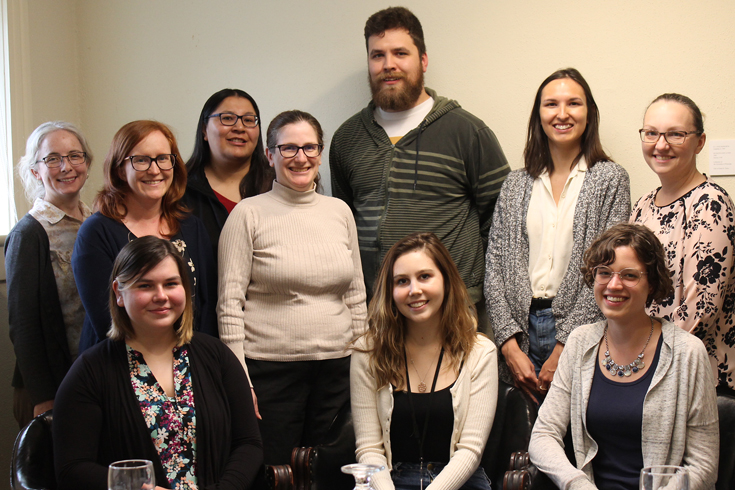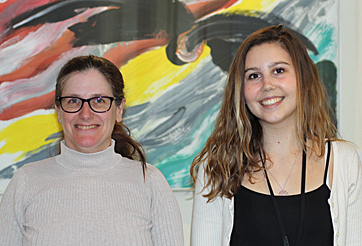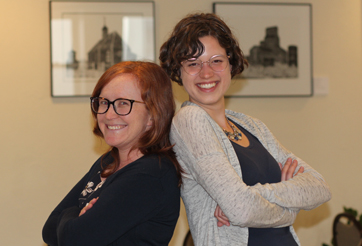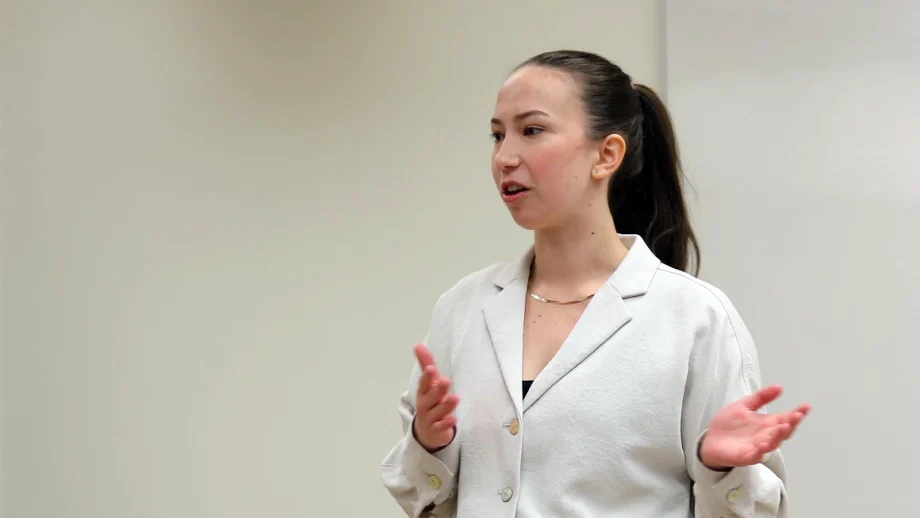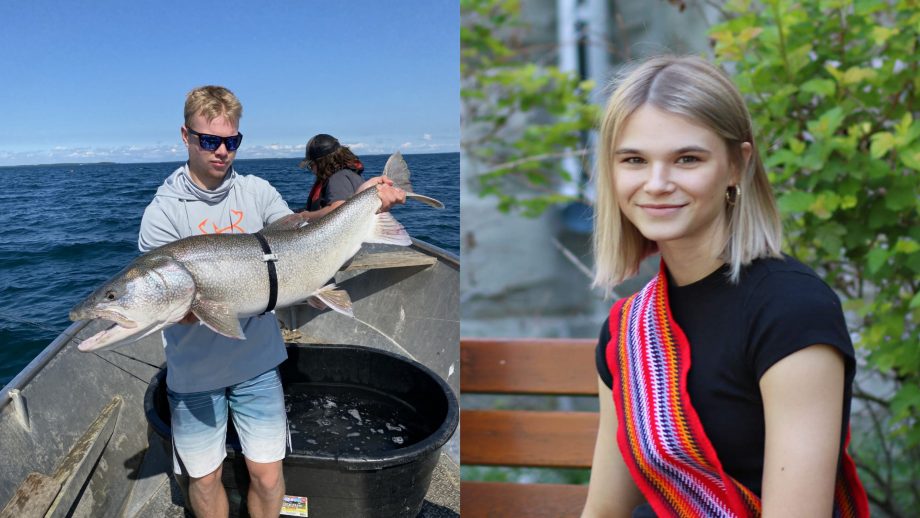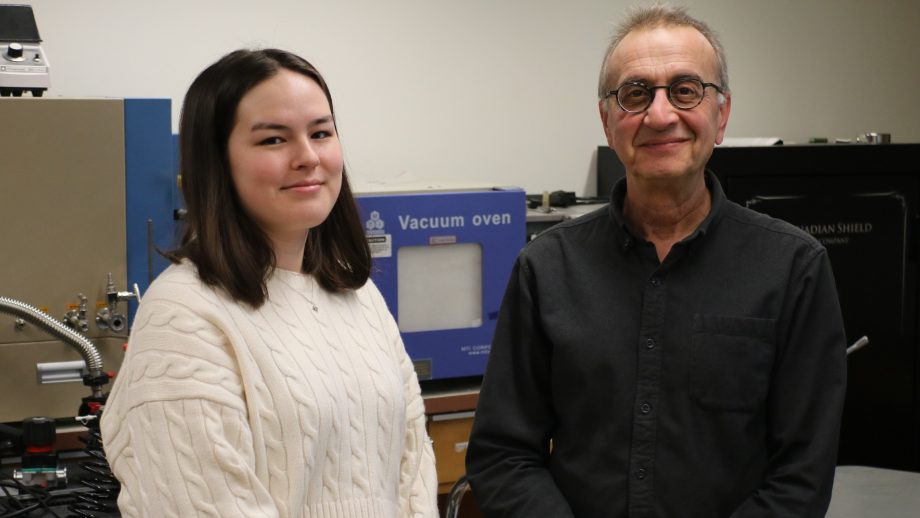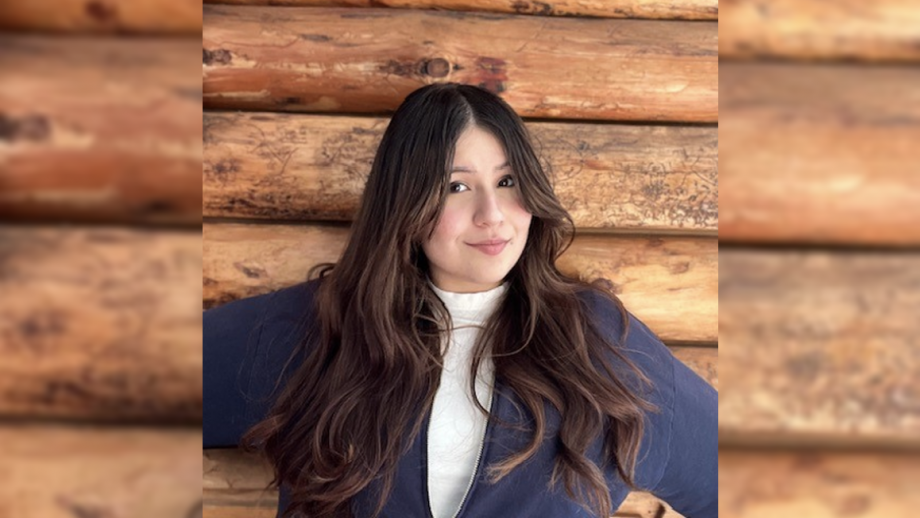University of Winnipeg Indigenous science students gained experience in a research environment, built a network with other Indigenous science students, and learned about supports to prepare them for upper-level science courses as part of the University’s new Pathways to Graduate Studies (P2GS) program.
The four-week program, funded by the Natural Sciences and Engineering Research Council of Canada (NSERC), ran May 6 – 31. Dr. Melanie Martin led the application to NSERC and worked with the Research and Innovation Office to get the program started.
For years, Martin had been brainstorming ways to enable more Indigenous students to enter programs in the natural sciences and engineering, inspired by a similar program in which her husband and colleague, Dr. Jeff Martin, had supervised students at The California Institute of Technology.
When she saw NSERC’s call for PromoScience grant applications last summer, the wheels were set in motion. Martin connected with Marina De Luna, who had previously worked as a program officer in research development at UWinnipeg and had written grant proposals with Martin in the past.
De Luna was excited to hear about the proposed program and volunteered countless hours to help Martin write a winning grant proposal. Martin said the support, along with help from Andrea McCluskey of UWinnipeg’s Aboriginal Student Services Centre (ASSC) and input from current and former Indigenous science students, was instrumental in setting the program up for success.
Student research projects exceed expectations
Over a four-week period, students participated in a variety of activities to advance their science skills and prepare them for senior undergraduate and graduate science courses. Students took classes in the morning taught by Melissa Anderson, Sean Hansen-Romu, Rebecca Carter, and Henri Sanness Salmon — all of whom are current UWinnipeg senior undergraduates or alumni now pursuing graduate studies.
After a morning in the classroom, the P2GS students headed into the research labs, spending their afternoons participating in projects supervised by UWinnipeg faculty members Dr. Nora Casson and Dr. Melanie Martin. Their research exceeded expectations.
“In a four-week program with only half days in the lab, I was expecting a very small project to be completed,” said Martin, who worked with Métis student Sidney Leggett. “I was hoping to excite Sidney with the work, making her want to come back for more research next summer, but we went way beyond that.”
Leggett’s extensive data analysis, on simultaneous PET/MR imaging, produced many meaningful results, providing researchers with new insight into how the brain functions. She will be presenting these results at the upcoming Manitoba Neuroscience Network Meeting, which will be held at UWinnipeg in June. Martin will also take the results to Vancouver to present them at the Canadian Association of Physicists Annual Congress.
“I am absolutely amazed with Sidney’s talent and dedication,” said Martin. “I am so glad she was a part of this program, and I know she will go far with whatever she does.”
Leggett is currently in the early stages of a BSc in Applied Computer Science. She wants to work in healthcare, and is now considering graduate studies as a way to take part in groundbreaking research.
“This is an amazing opportunity that shouldn’t be passed up,” she said. “Taking part in P2GS has inspired me to continue learning about different fields and how they work together.”
Dr. Nora Casson, an associate professor in UWinnipeg’s Department of Geography, worked with Métis student Hannah Tuckett. Casson was thrilled to see how well Tuckett read and analyzed literature related to her project.
“It was well above the level I’ve seen of other students at her stage, and demonstrates the great potential she has to continue in scientific research,” said Casson.
Tuckett is currently studying biology and education. The P2GS program confirmed her desire to pursue graduate studies in biology after she completes her undergrad.
“It has been a great experience living on campus, meeting new people, and creating connections for future research jobs,” she said. “I really enjoyed the variety of subjects we studied. I was inspired by the faculty, students, and researchers. Their passion, for their work and the research that they do, really showed.”
During morning classes, and afternoons in the research lab, P2GS students worked alongside students and researchers at various levels, gaining new insight into the opportunities and pathways available to them.
Casson saw how inspiring this experience was for participating students.
“It was really great to watch them connect – not just to learn about the lab techniques, but also to chat about what it’s like to continue on in science.”
P2GS is one of three UWinnipeg programs to receive NSERC science outreach funding this year. The program is a great opportunity for Indigenous students in the early years of their degree, who have either declared a major in science or indicated a strong interest in science, to be inspired by the many opportunities and supports available to Indigenous science students at UWinnipeg.

